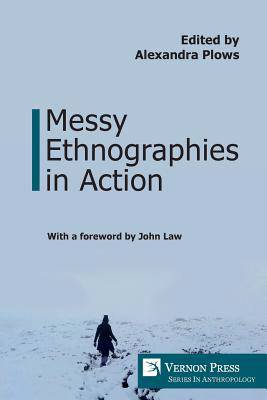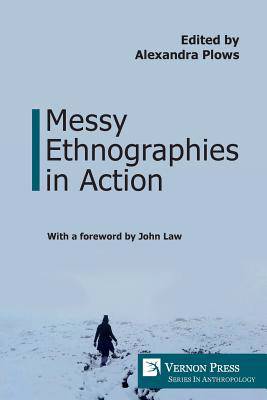
- Retrait gratuit dans votre magasin Club
- 7.000.000 titres dans notre catalogue
- Payer en toute sécurité
- Toujours un magasin près de chez vous
- Retrait gratuit dans votre magasin Club
- 7.000.0000 titres dans notre catalogue
- Payer en toute sécurité
- Toujours un magasin près de chez vous
Description
This edited collection of chapters showcases original and interdisciplinary ethnographic fieldwork in a range of international settings; including studies of underground pub life in North East England; Finnish hotels; and bio-scientific institutions in the Amazonian rainforest. Informed by John Law's concept of ethnographic "mess," this book makes a unique, empirically-informed, contribution to an understanding of the social construction of knowledge and the role that ethnography can and does play (Law, 2004). It provides a range of colourful snapshots from the field, showing how different researchers from multiple research environments and disciplines are negotiating the practicalities, and epistemological and ethical implications, of "messy" ethnographic practice as a means of researching "messy" social realities.
Law notes that "social...science investigations interfere with the world...things change as a result. The issue, then, is not to seek disengagement but rather with how to engage" (ibid p14). Drawing on their own situated experiences, the book's contributors address the "messy" implications of this and also explore the (equally messy) issue of why engage. They reflect on the process of undertaking research, and their role in the research process as they negotiate their own position in the field. What is ethnography "for"? What impact should, or do, we have in the field and after we leave the research site? What about unintended consequences? When (if ever) are we "off duty?" What does "informed consent" mean in a constantly shifting, dynamic ethnographic context? Is ethnography by its very nature a form of "action research?" By providing a wide range of situated explorations of "messy ethnographies," the book presents a unique, hands-on guide to the challenges of negotiating ethnography in practice, which will be of use to all researchers and practitioners who use ethnography as a method.
Spécifications
Parties prenantes
- Editeur:
Contenu
- Nombre de pages :
- 218
- Langue:
- Anglais
- Collection :
Caractéristiques
- EAN:
- 9781622734320
- Date de parution :
- 23-05-18
- Format:
- Livre broché
- Format numérique:
- Trade paperback (VS)
- Dimensions :
- 152 mm x 229 mm
- Poids :
- 299 g

Les avis
Nous publions uniquement les avis qui respectent les conditions requises. Consultez nos conditions pour les avis.





